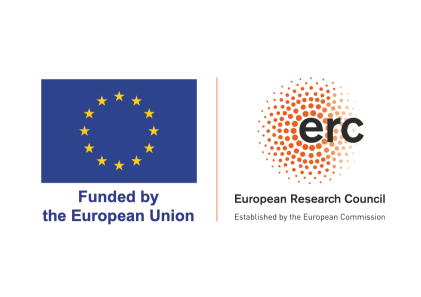Principal Investigator: Hans Alves
In light of the proceeding globalization, societies become more and more diverse regarding people’s ethnic and religious backgrounds, their habits, ideals, and beliefs. While this increasing diversity offers great opportunities for Europe and the world, it also comes with great challenges. The human tendency to derogate out-groups and minority groups poses a particular threat to peace and cooperation in diversifying societies. Most available psychological explanations for the formation of negative attitudes and stereotypes towards others rely on people’s self-serving motivations or personalities, which bears the risk of circularity and leaves our understanding of some of societies’ greatest challenges largely incomplete. Based on the research that I have conducted over the past years, I propose a theoretical framework that provides novel explanations for the formation of negative attitudes and stereotypes about out-groups and minorities. Accordingly, these phenomena arise as natural by-products of innocent cognitive processes and the structure of the external information ecology. This cognitive-ecological framework argues that people associate out-groups and minority groups with their distinct attributes which differentiate them from in-groups and majorities. In the external information ecology, however, distinct attributes have a high probability of being negative, and therefore out-groups and minorities suffer a general evaluative disadvantage. In addition, the framework can explain why most existing stereotypes are negative. In the domain of news reporting, it can explain why news recipients overestimate the prevalence of negative attributes and behaviors among members of minority groups, and why politician’s and journalists’ attempts to counteract often backfire.
This project has received funding from the European Research Council (ERC) under the European Union's Horizon 2020 research and innovation programme (Grant agreement No. 947988).

Principal Investigator: Moritz Ingendahl
People change their attitudes towards people and objects based on their mere co-occurrence with positive/negative stimuli in the social environment, a phenomenon termed evaluative conditioning (EC). Despite its robustness and relevance, EC research has so far focused on the simple case where a person or object co-occurs with a single positive/negative stimulus within a situation. However, stimulus pairings in the social environment are arguably more complex and often involve more than one affective stimulus at a time, which has so far not been addressed theoretically in EC. In this project, we expand a new framework to study EC with multiple affective stimuli (Ingendahl et al., 2024, JPSP). Based on earlier research on information integration and negativity biases, we propose two distinct types of information integration in EC – summation and averaging. The first experiments (Ingendahl et al., 2024, JPSP) show evidence for an averaging rule underlying conditioned attitudes, where negative stimuli receive a stronger weight. In this project, we follow a research agenda serving four primary goals: First, we systematically test the generalizability and boundary conditions of the weighted averaging rule in EC. Second, we identify the cognitive processes underlying information integration, specifically whether the information is integrated during learning or when making an evaluative judgment (see Weber et al., 2025, JESP). Third, we propose a distinction between propositional and associative processes in the underlying information integration rule. Last, we dissociate between attitude valence and attitude strength regarding the information integration rule.
This project has received funding from the German Research Foundation (DFG) under the “Sachbeihilfe” programme (Grant agreement No. 529668264).